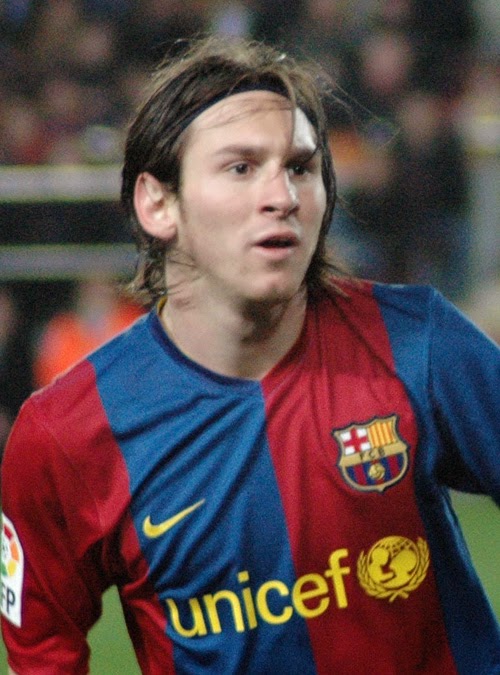What is Lionel Messi's ethnicity? The answer to this question is a bit complicated, as Messi's ancestry is a mix of several different ethnic groups.
Messi's paternal grandparents were Italian immigrants from the Marche region, while his maternal grandparents were from Catalonia, Spain. This mix of Italian and Catalan ancestry makes Messi a unique case, as he is one of the few footballers in the world who can claim to have a truly international background.
Messi's ethnicity has been a source of pride for both Italians and Catalans, and he has been celebrated as a symbol of the cultural diversity of both regions. In Italy, Messi is seen as a role model for young Italian-Argentines, and he has been praised for his dedication to his craft and his commitment to his family. In Catalonia, Messi is seen as a symbol of the region's cultural identity, and he has been credited with helping to promote Catalan culture around the world.
Messi's ethnicity is a reminder of the complex history of immigration and cultural exchange that has shaped the world. It is also a reminder of the power of sports to bring people together from all walks of life.
messi ethnicity
Introduction
Lionel Messi is an Argentine professional footballer who plays as a forward for Ligue 1 club Paris Saint-Germain and captains the Argentina national team. Widely regarded as one of the greatest players of all time, Messi has won a record seven Ballon d'Or awards, a record six European Golden Shoes, and has been named FIFA World Player of the Year a record six times. Messi holds the records for most goals scored in La Liga (474), the UEFA Champions League (129), and for the Argentina national team (98). He has scored over 800 senior career goals for club and country.
Key Aspects
- Messi's paternal grandparents were Italian immigrants from the Marche region.
- Messi's maternal grandparents were from Catalonia, Spain.
- Messi's ethnicity makes him a unique case, as he is one of the few footballers in the world who can claim to have a truly international background.
- Messi's ethnicity has been a source of pride for both Italians and Catalans.
- Messi is seen as a role model for young Italian-Argentines and a symbol of Catalan culture.
Discussion
Messi's ethnicity is a reminder of the complex history of immigration and cultural exchange that has shaped the world. It is also a reminder of the power of sports to bring people together from all walks of life.
{point}
Introduction
Messi's ethnicity has been a source of pride for both Italians and Catalans. He is seen as a role model for young Italian-Argentines and a symbol of Catalan culture.
Facets
- Role model for young Italian-Argentines: Messi is seen as a role model for young Italian-Argentines because he has achieved great success in his career despite his humble beginnings. He is also known for his dedication to his craft and his commitment to his family.
- Symbol of Catalan culture: Messi is seen as a symbol of Catalan culture because he is one of the most successful footballers in the world and he is from Catalonia. He is also known for his commitment to the Catalan language and culture.
Summary
Messi's ethnicity has been a source of pride for both Italians and Catalans. He is seen as a role model for young Italian-Argentines and a symbol of Catalan culture. His success on the field and his commitment to his family and culture have made him a beloved figure in both countries.
FAQs on "messi ethnicity"
This section provides brief answers to frequently asked questions (FAQs) related to Lionel Messi's ethnicity, offering a concise overview of key aspects and addressing common misconceptions.
Question 1: What is Lionel Messi's ethnicity?
Lionel Messi's ethnicity is a mix of Italian and Catalan. His paternal grandparents were Italian immigrants from the Marche region, while his maternal grandparents were from Catalonia, Spain. This unique blend of heritage makes Messi a symbol of cultural diversity, representing both Italian and Catalan identities.
Question 2: Why is Messi's ethnicity significant?
Messi's ethnicity holds significant importance for several reasons. Firstly, it reflects the rich history of immigration and cultural exchange that has shaped both Italy and Catalonia. Secondly, it serves as a source of pride for both Italian and Catalan communities, who see Messi as a representation of their cultural heritage on a global stage. Lastly, Messi's mixed ethnicity embodies the spirit of inclusivity and diversity that is celebrated in modern society.
In conclusion, Lionel Messi's ethnicity is a testament to the complex and interconnected nature of human heritage. It highlights the power of diversity and the shared cultural experiences that unite people across borders.
Conclusion
Lionel Messi's ethnicity is a unique and fascinating blend of Italian and Catalan heritage. His paternal grandparents were Italian immigrants from the Marche region, while his maternal grandparents were from Catalonia, Spain. This mix of ancestry makes Messi a symbol of cultural diversity, representing both Italian and Catalan identities.
Messi's ethnicity has been a source of pride for both Italians and Catalans, and he has been celebrated as a symbol of the cultural diversity of both regions. He is seen as a role model for young Italian-Argentines and a symbol of Catalan culture. Messi's success on the field and his commitment to his family and culture have made him a beloved figure in both countries.
Is Dennis Quaid's Plastic Surgery A Success Or A Failure?
How Ken Block's Kids Are Dominating The Drifting Scene
Is Roseanne Barr Still Alive Today? Find Out The Truth!

Around the World in English Lionel Messi and the ascent of Barca
Lionel Messi Ethnicity